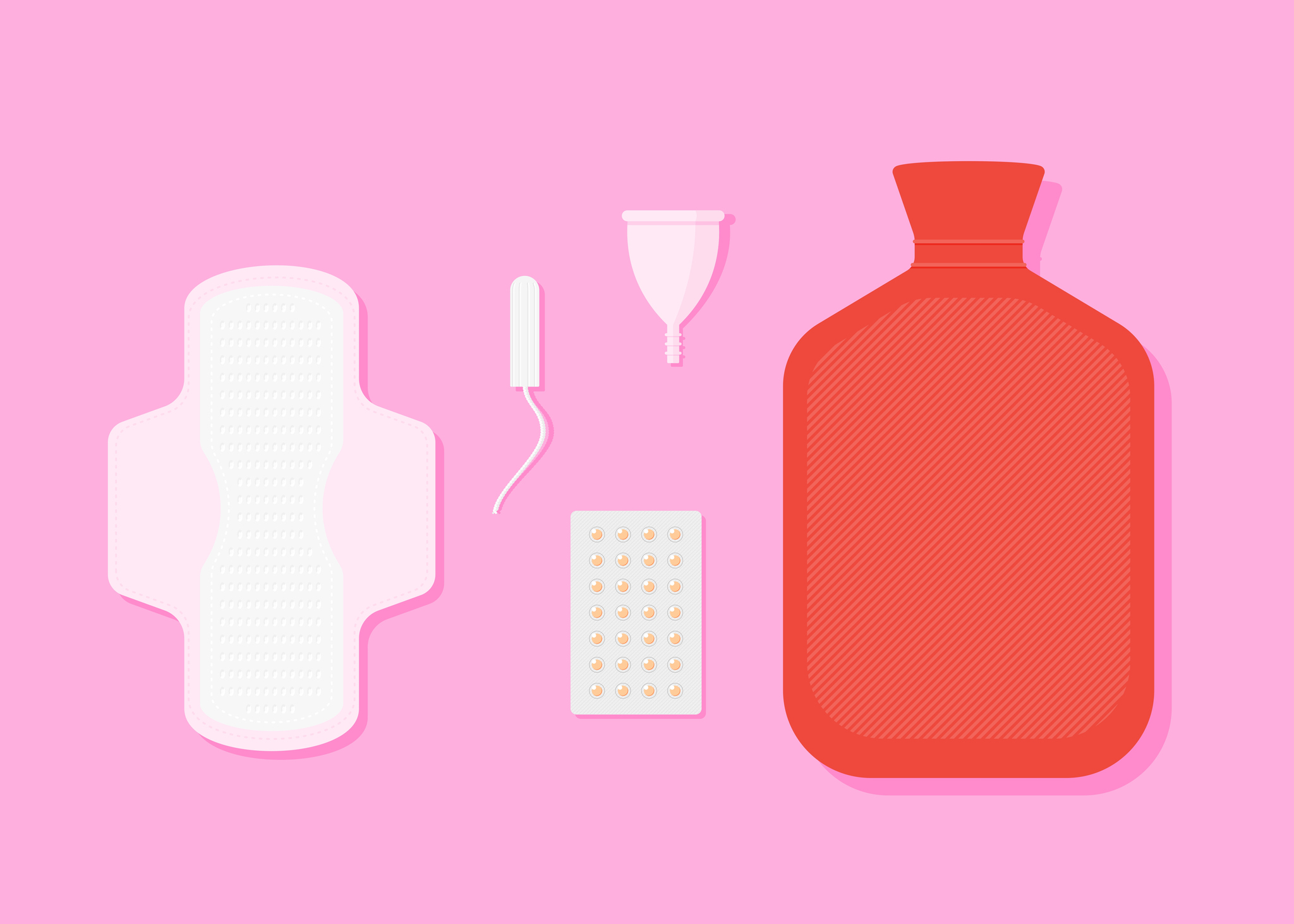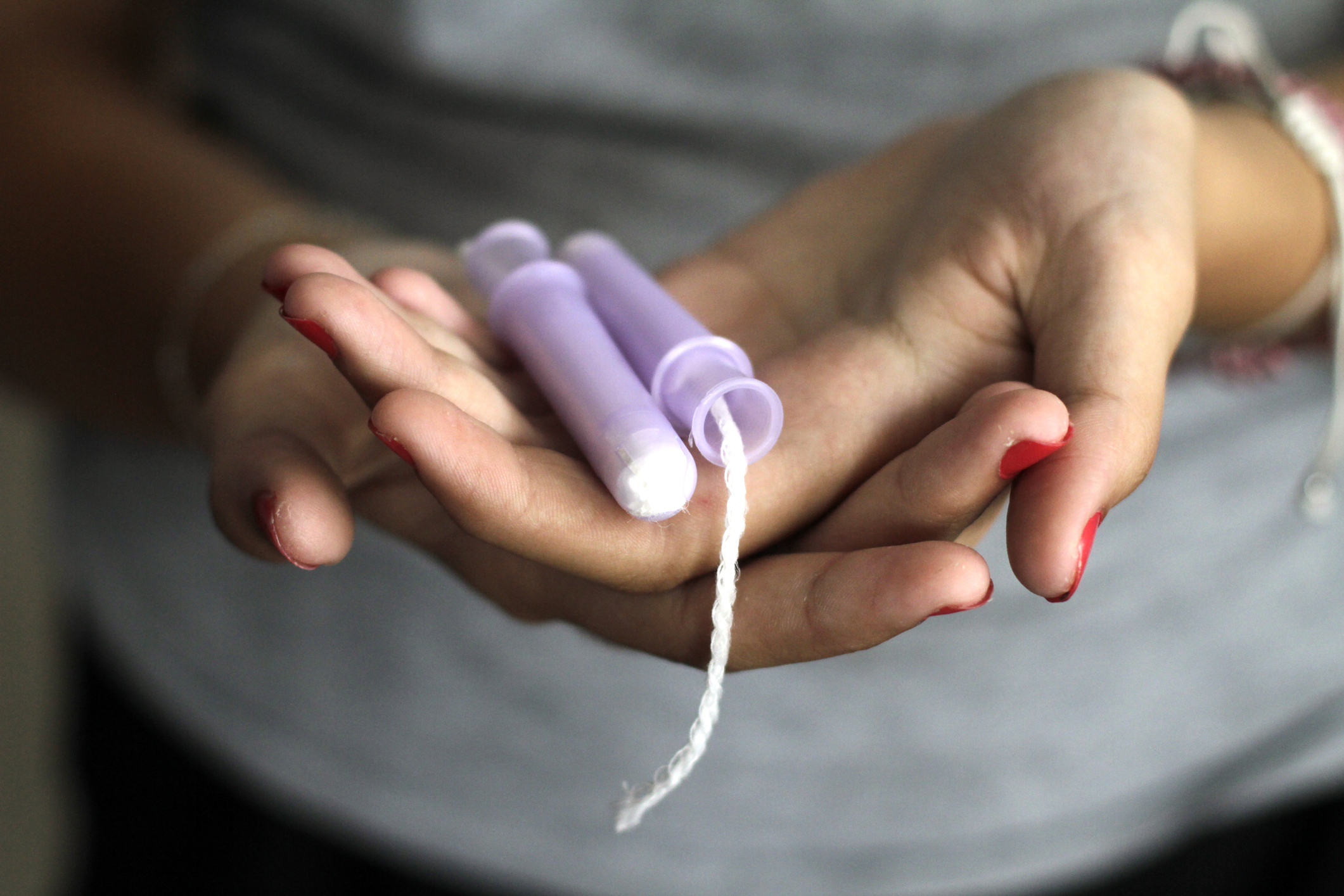Period poverty has become even more of an issue during the pandemic - what can you do to help?
It's affecting thousands across the UK...

Our monthly period is often regarded by many of us as simply an inconvenience - a time of heightened emotions, stomach pain and just feeling generally comfortable. But for others across the world who suffer with period poverty, the issue of menstruation is far more distressing - and it seems it has only been exacerbated by the coronavirus pandemic.
What is period poverty?
Action Aid defines period poverty as the inability to access sanitary products and the "safe hygienic spaces in which to use them."
It is a health risk, but it can also affect the mental wellbeing, education and lives in general of people who menstruate across the world.
Period poverty can also refer to the lack of menstrual education, for people who are less likely to access it.
Period poverty has been rife in more vulnerable areas of the world for some time now, but it's also a crisis that affects women and girls in the UK.
Period poverty UK: how has the coronavirus pandemic made the problem worse?
According to experts, the recent pandemic has resulted in people suffering even more with period poverty.
Bloody Good Period, a UK charity that provides menstrual supplies to those who cannot afford them, revealed that they have distributed over 32,000 products since the start of lockdown on 23rd March. That’s an increase of 5.5x the normal level of demand that experience for sanitary items, such as tampons and sanitary towels. Even food banks have needed to stock them too, to help provide for the most vulnerable.
GoodtoKnow Newsletter
Parenting advice, hot topics, best buys and family finance tips delivered straight to your inbox.
Tina Leslie runs the charity Freedom 4 Girls, based in Leeds, and told the BBC that they have distributed more than 7,500 packs of menstruation products since the start of lockdown over four months ago. Normally, they give out just 500 a month.
She explained the devastating impact period poverty can have on women and girls.
"If you can't manage your periods your emotional mental health is just plummeting. You feel awful, you feel dirty - you just need to have that protection so you can go about your daily life."

So why has the pandemic made period poverty that much worse?
Tina explained that the places women and girls would normally access sanitary products have been closed for months during the lockdown, as families ploughed ahead with homeschooling for example. She said, "Corona has exacerbated the issue over lockdown. Community centres weren't open, schools were closed."
She also stated that even schools had reached out to Freedom 4 Girls for supples, as they had 'run out'.
MORE: Female contraception: which type is best for me?
It's not surprising considering how expensive periods can be.
Bloody Good Period explain that the average lifetime cost of having a period is around £4,800 - a staggering sum of money for something that you cannot help but have, and need to deal with as a necessity.
Period poverty is by no means a UK problem however. It has been an issue in less-developed countries for years, and can seriously affect women and girl's prospects in life. Action Aid notes that in Sub-Saharan Africa, for example, some girls will miss as much as 20% of their school year. And for some, it can mean dropping out of school altogether.
How you can help end period poverty
Prior to the lockdown, free sanitary products were made available to students in English schools and colleges, following a two-year campaign to help tackle the issue of period poverty for some of the youngest women.
However, it seems that the scheme has been somewhat interrupted by the Covid-19 lockdown, which has made accessing period products more difficult in all sorts of ways.
So how can you help in the battle against period poverty right now?
Hey Girls, a company selling period products, will give away a box of sanitary products to a young person in need, for each product that you buy on their website here.
You can also donate to Freedom 4 Girls here, which will help them to continue to support people who menstruate, through education, the delivery of period products.
Bloody Good Period supply products to asylum seekers and refugees who can't afford them. You can donate to help them continue in this mission here.
Activist Amika George set up the organisation Free Period to fight against period poverty in low-income families. You can donate to her fundraising campaign to continue the work here.
It's also worth noting that schools can still order in free period supplies, under the above mentioned Department of Education scheme - Free Periods have more information here on how to get in touch with your local school or college about this.
You can also donate to Action Aid, to help women and girls in other countries - just £3 will buy a hygiene kit containing sanitary towels.
Amy is Senior Digital Writer across Woman & Home, GoodTo and Woman, writing about everything from celebrity news to health, fashion and beauty features. When she isn't obsessing over the latest dress drop from Marks & Spencer, you'll most likely find Amy out running, or with a cup of tea in hand ready to dive into a gripping new Netflix series.